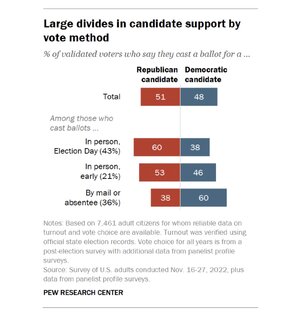I just read through a few things that popped up, and what I saw was no clear consensus - some papers seem to argue that betting markets are better predictors (e.g., your link,
and this), others argue that they are worse (
example,
example), some argue that it's unclear what performs better (
example) or that they contain the same information (
link). So in short, I don't see how any sensible person could survey that literature and come to the conclusion that betting markets are more accurate than polls.
As someone who's career is built around figuring out ways to measure things robustly, one thing that has irritated me in the post-538 era (these poll-conglomerating "models") is that there is never an honest discussion about actual information content. Or to put it another way, what, if any, significance is there to someone's fancy model assigning 55% "probability" for one candidate to win? It doesn't take a fancy model to quickly assess that the range of plausible outcomes for the US presidential election has 2 possibilities. The simplest model one could build would then be a coin flip - in fact I've just constructed such a model! I even ran 10,000 simulations of the election, and guess what, it's a real horse race with Kamala Harris winning 50.7% of the time, and Trump winning 49.3% of the time. How in the world would one ever construct a statistical test to robustly show that my coin flip model is less predictive than the NYT or 538 or whatever simulator giving one candidate a 53% chance and the other a 47% change. Do you know how many elections for which you'd have to have actual data (results) to be able to distinguish in a statistically robust way that the NYT/538 models are fundamentally different from a coin flip? The answer is a lot, but we just get the one.




